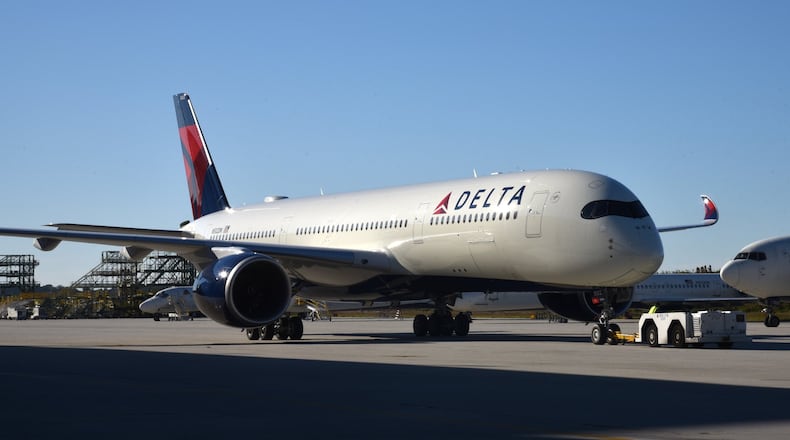Flights from Atlanta to Seoul are already among the longer ones operated out of Hartsfield-Jackson International Airport.
The flight lasts more than 14 hours, depending on the weather and other factors. But fallout from the Russian invasion of Ukraine thousands of miles away has taken off the map the shortest preferred route available to connect the two former Olympic cities, which enjoy strong economic and social ties.
Before the war, flights between Atlanta and the South Korean capital often crossed over Russia, Canada and Alaska on a northerly “great circle” route that’s shorter because of the earth’s curvature. But Russian airspace is now off limits amid simmering geopolitical tensions.
Credit: Source: DeBrian Travels and FlightAware
Credit: Source: DeBrian Travels and FlightAware
That means an Atlanta to Seoul flight that already takes up the better part of a day can now take even longer.
Credit: Source: FlightAware
Credit: Source: FlightAware
Jae Kim, president of the Southeast U.S. Korean Chamber of Commerce, said he had visitors from Korea arrive in Atlanta recently who didn’t notice any big impact. A little extra time on such a long flight isn’t a huge inconvenience because some people sleep during the trip anyway, he noted.
“We’re just hoping it doesn’t add any issues,” he said.
Flights between Hartsfield-Jackson and Seoul Incheon International Airport operated by Delta Air Lines and Korean Air now trace a path to Asia just outside of Russian airspace before turning in towards Korea, according to FlightAware.com. It can vary, but in some cases, the altered routes can result in flights more than 15 hours long, the flight tracking service shows.
Kim flies to Korea twice a year with another trip planned next month.
“Maybe it is going to be a little different in May when I fly,” he said.
The Russian airspace closure is yet another complication for airlines already grappling with the uneven return of business and leisure travel from the pandemic. More than a month into the war, airspace restrictions continue to cause headaches for route planners.
Staffing shortages and soaring jet fuel costs aren’t helping either.
Atlanta-based Delta launched its Atlanta-Seoul route in 2017. It temporarily suspended the route early in the pandemic before resuming the service with a limited schedule in July 2020.
Delta has been promoting the fact that South Korea recently loosened travel restrictions by allowing fully vaccinated travelers to fly in with COVID-19 testing but no quarantine required.
In a statement, Delta acknowledged it has been “avoiding far-eastern Russian airspace in our limited trans-Pacific flying,” but the airline declined to discuss travel times.
Some Asian routes, including Atlanta-Shanghai, are still suspended because of pandemic restrictions.
The added flight time between Atlanta and Seoul is likely more of a nuisance than a deal breaker, as long as the nonstop route continues on a close-to-regular schedule.
Credit: Source: FAA and Google Earth, via Cirium
Credit: Source: FAA and Google Earth, via Cirium
For people from Korean companies and organizations, “these direct flights to Atlanta [from Seoul] are very important,” Kim said.
Georgia is home to dozens of facilities run by Korean-affiliated companies, including Kia Motors’ only U.S. assembly plant and a sprawling battery factory owned by a subsidiary of Korean conglomerate SK Innovation.
Georgia also has a large Korean American population.
Some of the biggest impacts of the Russian airspace closure are on a number of flights from Europe to Asia that have had to add hours to their flight times. Many others have been canceled.
The Russian airspace closure also affects cargo flights, such as regular service between Atlanta and Seoul operated by Asiana Airlines.
But the Russian restrictions have been far more troublesome for some cargo flights between Europe and Asia, which have had to reduce loads because the rerouting requires more fuel. That drives tighter weight restrictions for cargo, said Jens Flottau, an executive editor at Aviation Week during a recent webinar.
“What’s happened is people have just left cargo on the ground, reduced cargo load, and tried to fly the existing routes just with less cargo,” Flottau said.
Cancellations of flights have also increased the supply chain squeeze, and higher fuel prices have driven up costs.
About the Author
The Latest
Featured






